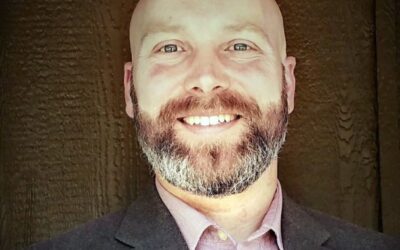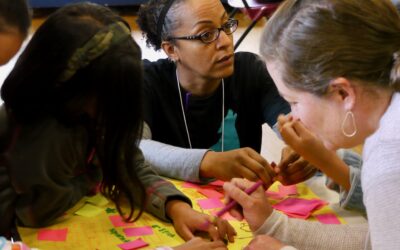Teacher Contributions & Feedback

Teacher created model template (5th Grade, matter and energy in ecosystems)

Teacher created model template (2nd Grade, properties of materials)
How have your beliefs about science instruction changed over the course of this professional learning series?
“This series helped to change my emphasis in teaching science. Instead of trying to “cram” as much information as possible into my students, I am now focusing on building curiosity and wonder. I am also putting more effort into effective classroom discussions.” Krissa, 3rd Grade Teacher
“I thought a lot of science instruction was about providing information and having students learn through some hands-on but mostly direct instruction. This course has caused me to value discourse and student ideas and thinking. Science isn’t about achieving an answer but coming up with many answers and working on them.” Trista, 1st Grade Teacher
“Having kids come to understanding science concepts through phenomena, productive discourse and modeling is best practice so kids can wonder, explore, and question. This is over the old way of us telling them, doing an experiment to prove it, then testing on it. It is richer and brings deeper understanding.” Heidi, 5th Grade Teacher
“I used to dread teaching TWIG (science curriculum)… but learning how to use the anchor phenomena has helped me make new connections and made the curriculum much more engaging. It also reminded me of the importance of student voice in all instruction, but especially in science. Abigail, 5th Grade Teacher
“My beliefs have changed because now I understand that science instruction is just as much student-led as it is teacher-led.” Jakob, 5th Grade Teacher
How would you describe this professional learning series to a colleague?
“This was an engaging and challenging series. I got a little “gem” from each class that challenged me to think differently and to try something new. I feel like I have changed the way I view teaching science – from a very teacher-centered way to one that is student-centered and driven by questioning and wonder. This series gave me the opportunity to discuss ideas with teachers across our district. I always appreciate that.” Krissa , 3rd Grade Teacher
“This is an opportunity to take a science class that you really would like to try implementing some of the strategies into your instruction. It will make you think about your science instruction differently.” – Lori, Kindergarten Teacher









 This site is primarily funded by the National Science Foundation (NSF) through Award #1907471 and #1315995
This site is primarily funded by the National Science Foundation (NSF) through Award #1907471 and #1315995